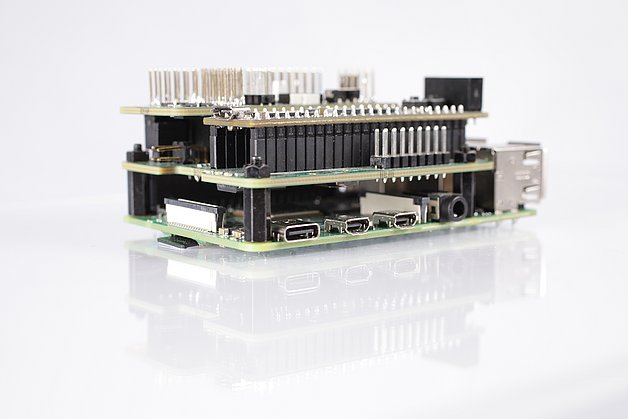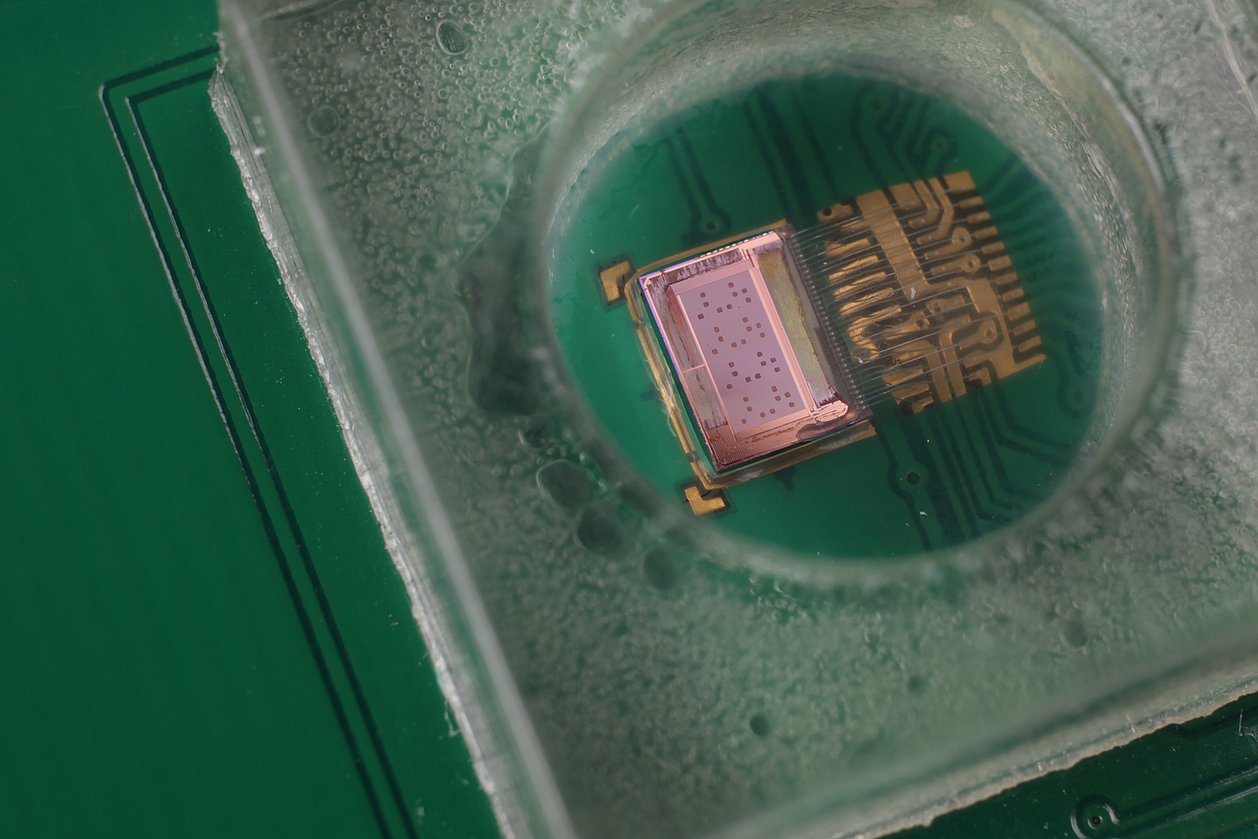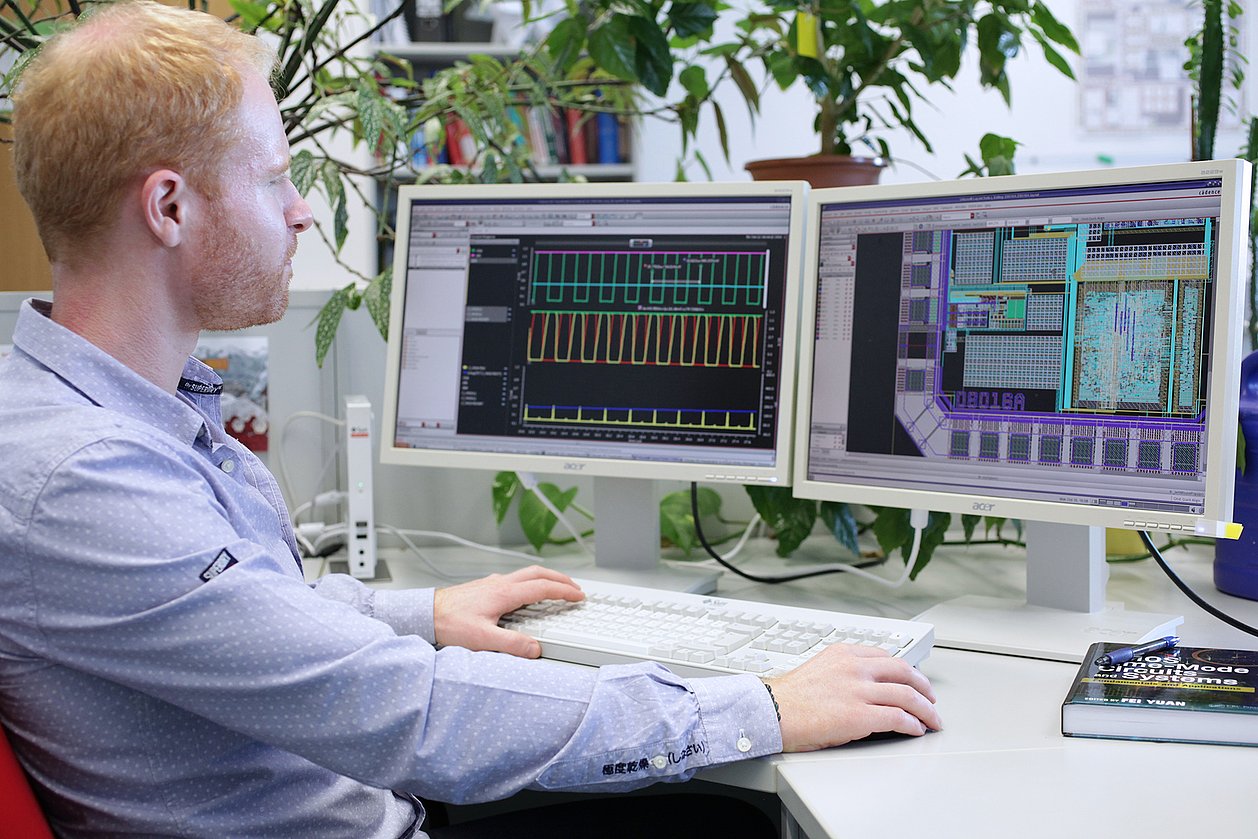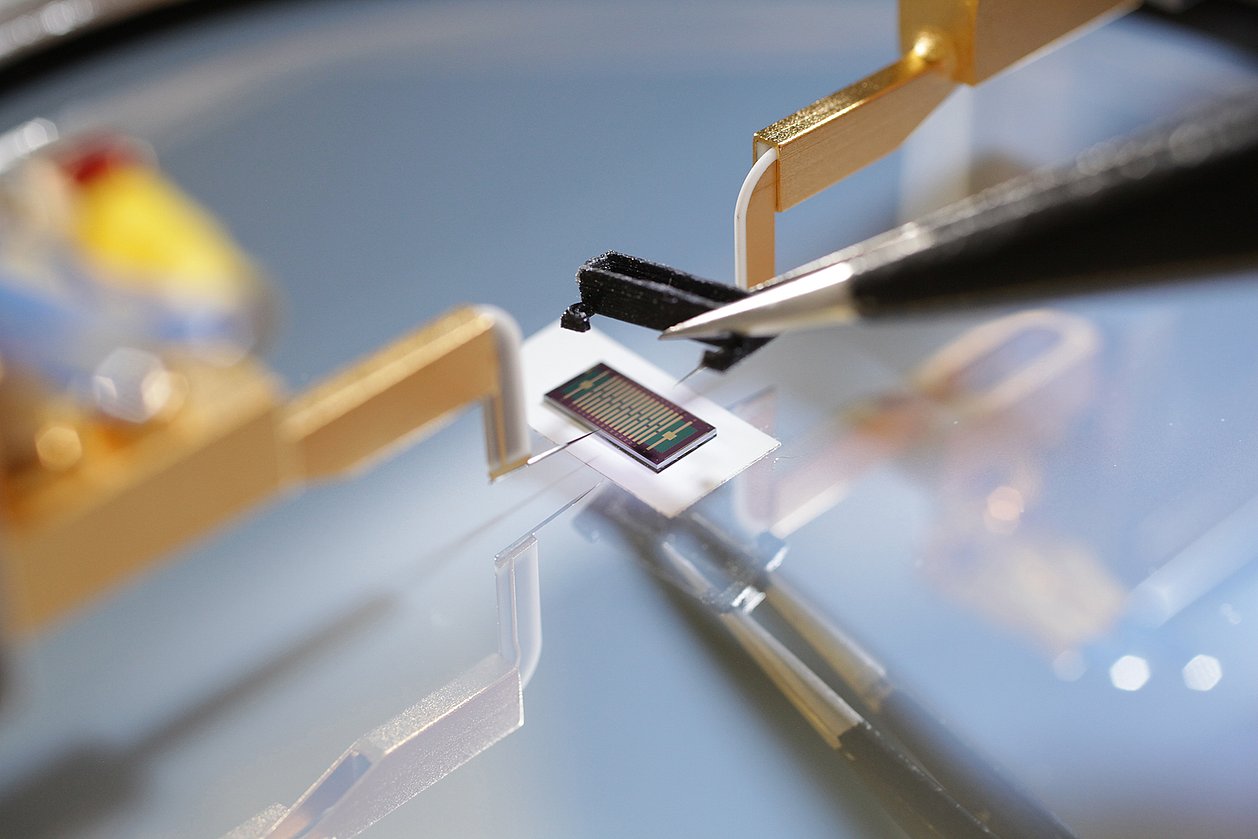Florian Kögler, M.Sc., researcher
“During my time at IMMS I discovered new challenges that went beyond the contents of my studies. For example, I combined the topic of my Bachelor’s thesis with the scientific fields of opto-physics, chemistry and electrical engineering. I like the fact that many topics for student work are integrated into ongoing projects and their results are incorporated there.”
”I have been at IMMS since 2017, since 2020 as a researcher in the microelectronics department. I started here with a technical internship and my bachelor thesis, which involved the modeling of fluorescence-based optical measurement systems. In my studies of electrical engineering & information technology at Ilmenau TU I specialised in circuit design. During my time at IMMS I discovered new challenges that went beyond the contents of my studies. For example, I combined the topic of my Bachelor’s thesis with the scientific fields of opto-physics, chemistry and electrical engineering.
I like the fact that many topics for student work are integrated into ongoing projects and their results are incorporated there. At the same time, sufficient time and support is provided for the students’ scientific work. This and also the pleasant collegial environment persuaded me to do my Master’s thesis at IMMS.
It involved the development of ion-sensitive field-effect transistors (ISFETs), which are capable of measuring the pH value of liquids, among other applications. The ISFETs were to be implemented in a standard CMOS process to enable cost-effective production without costly additional processes as well as integration into sensor systems. In this approach, a variety of problems can arise that complicate their use compared to conventional pH glass electrodes. In advance, our internal research group on integrated system solutions for life sciences applications therefore conducted a broad research to identify and evaluate the problems and to find possible solutions. In my master’s thesis, I then dealt with the various steps of the semiconductor design process, starting with the requirements definition, through circuit design, to the layout, which requires special attention for ISFETs. This resulted in a test structure with different transistor elements and surfaces from which the best one could be selected.
The topic of ISFET sensors still accompanies me even after my studies. Together with a team from the fields of microelectronics and measurement technology, we succeeded in setting up the test structure and running it successfully. In characterising them, interesting insights keep coming to light, but also new questions and hurdles to overcome. Based on the initial results of the test structure, a sensor chip with a digital interface was also developed in the SenpH project. In addition, I am investigating the implementation of machine learning approaches within the VE-ARiS project in order to make product piracy of circuits more difficult.
I find the working atmosphere at IMMS very pleasant. The work in the research projects offers the opportunity to contribute and pursue one’s own ideas. I like the institute-wide exchange of knowledge across departments, which takes place both in the regular institute colloquia and through discussions during the lunch break. I look forward to continuing to encounter exciting topics at IMMS.“
Related content

Project
VE-ARiS
IMMS developed copy protection solutions for integrated circuits to secure the know-how of partners
Trust is Good, Monitoring is Better: FPGA- & TEE-Based Monitoring for Malware-Detection
Friederike Bruns1. Georg Gläser2. Florian Kögler2. Jonas Lienke2. Nithin R. Nanjundaswamy3. Gregor Nitsche3. Behnam R. Perjikolaei4. Jörg Walter4.13th IMA International Conference on Modelling in Industrial Maintenance and Reliability MIMAR2025, July 8-10, 2025, Université de Lorraine, France, DOI: doi.org/10.19124/ima.2025.01.25
1Carl von Ossietzky Universität Oldenburg, Oldenburg, Germany. 2IMMS Institut für Mikroelektronik- und Mechatronik-Systeme gemeinnützige GmbH, Ehrenbergstraße 27, 98693 Ilmenau, Germany. 3DLR Institut für Systems Engineering, Oldenburg, Germany. 4OFFIS e.V. Institut für Informatik, Oldenburg, Germany.Miniaturisierte CMOS-basierte Multi-Sensor-Plattform für die Analytik und Diagnostik
Alexander Hofmann1. Florian Kögler1. Elisa Hilbrecht1. Victoria Dimova1. Eric Schäfer1.17. Dresdner Sensor-Symposium, 25. - 27. November 2024, Dresden, DOI: doi.org/10.5162/17dss2024/P38
1IMMS Institut für Mikroelektronik- und Mechatronik-Systeme gemeinnützige GmbH, Ehrenbergstraße 27, 98693 Ilmenau, Germany.Set the Clock: A Synthesizable Clock Manager
Jonas Lienke1. Florian Kögler1. Eric Schäfer1.2024 20th International Conference on Synthesis, Modeling, Analysis and Simulation Methods and Applications to Circuit Design (SMACD), Volos, Greece, July 02-05, 2024. pp. 1-4, DOI: doi.org/10.1109/SMACD61181.2024.10745390
1IMMS Institut für Mikroelektronik- und Mechatronik-Systeme gemeinnützige GmbH, Ehrenbergstraße 27, 98693 Ilmenau, Germany.VE-ARiS: Alberich und die Tarnkappenfabrik. SKAW – Schaltungskopierbarkeitsanalysewerkzeug
Adrian Pitterling1. Florian Kögler1. Georg Gläser1.Tage der vertrauenswürdigen Elektronik 2024, 4. - 5. Juni 2024, München
1IMMS Institut für Mikroelektronik- und Mechatronik-Systeme gemeinnützige GmbH, Ehrenbergstraße 27, 98693 Ilmenau, Germany.





